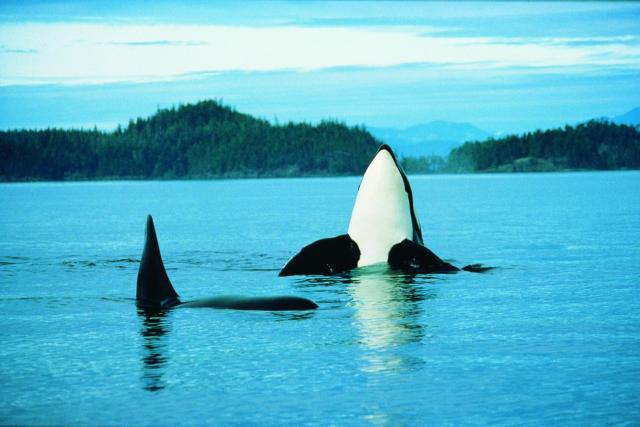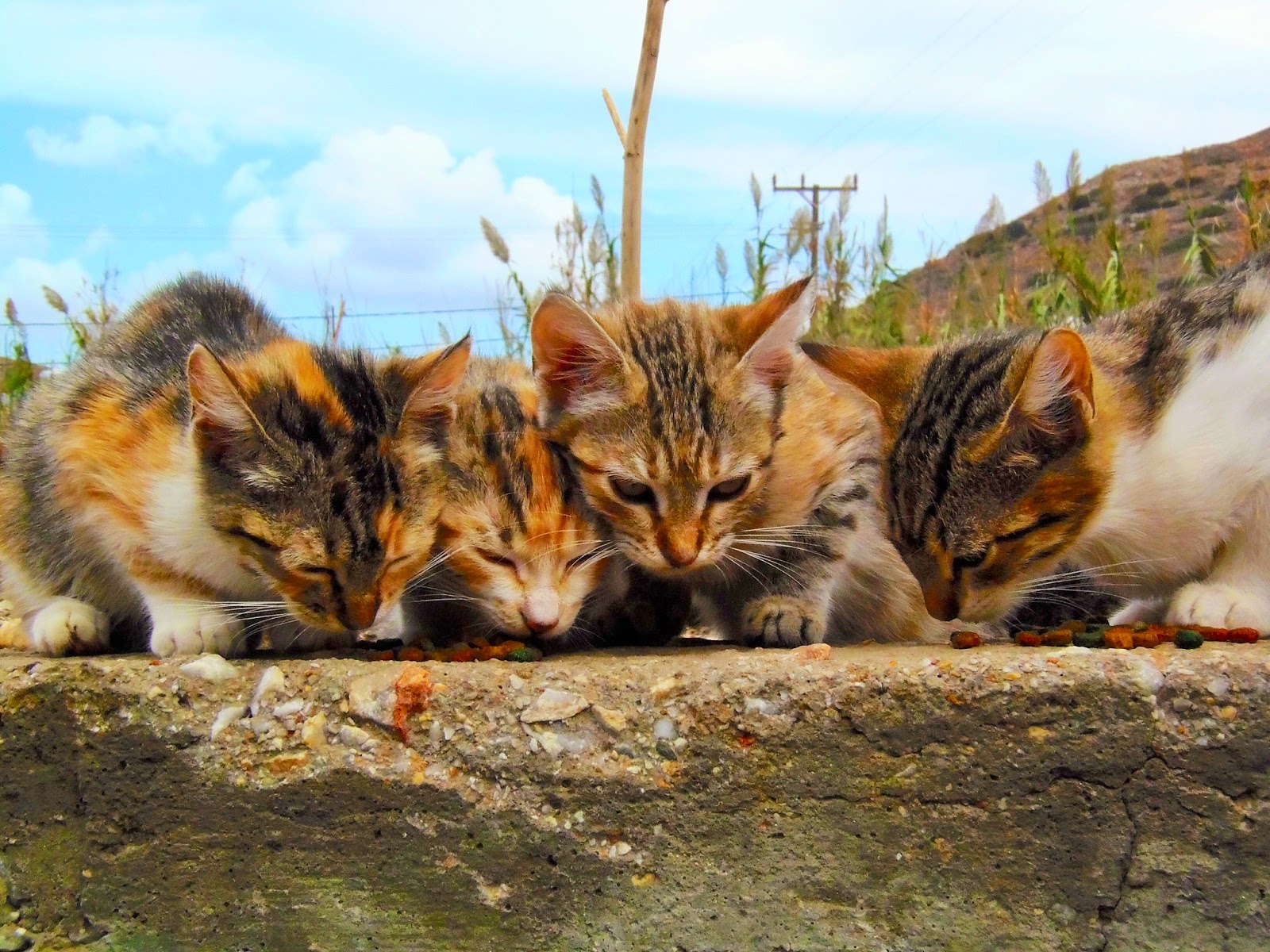Treat animals better or leave them alone
e
I just received this article from Ethological Ethics and wanted to share it with you. It's right up my street...
I`m impressed, but also a little surprised, at the public reaction to the tragic killing of a Florida SeaWorld trainer who was dragged beneath the water and killed by "performing" orca Tilikum on Feb. 24. I expected an outcry more or less calling for "Tilly`s" head. Sure, we`ve come a long way from 1916, when Mary the elephant was hanged to death for crushing the head of Red Eldridge (a true circus freak: he poked and prodded Mary into a fury); crowds at the hanging chanted, "Kill the elephant!" and newspapers called her "Mary the murderer". But we`re still a little insane about animals we perceive as dangerous. To this day, wolves -- which have not attacked a human (with one possible, sketchy exception) in all of recorded North American history -- are labeled by some as "vicious" killers. Pit bull terriers, as nice a breed of dog as you could find -- until vicious humans get hold of them -- are demonized all the time in the press. Sharks are in precipitous decline, not just because they taste good, but because it`s still considered acceptable to kill "cold-blooded killers."
But our reaction to the Tilly tragedy was impressive. There were immediate calls to spare the whale`s life; big-hearted, if misguided, demands that he be set free, Hollywood style; and outrage over confining him in insanely unnatural conditions for the purposes of a few human giggles. And why not? The real villain in this tragedy is jailing an orca and demanding that he perform tricks for his supper. "Keeping a whale like Tilly in an aquarium is like putting a goldfish in a cup," except that the whale has powerful emotions and cognitive ability, says Marc Bekoff, professor emeritus at the University of Colorado, Boulder and one of the world`s experts in animal emotions. Whales and dolphins, which use sonar to navigate, may experience life as incessant noise when confined in concrete and glass tanks. Where naturally they range over thousands of miles of open ocean, in captivity they literally can`t go anywhere. Bekoff who has mellowed into a humane pragmatism over the years - is especially opposed to captive breeding of large animals like orcas. Tilly, he notes, has sired 13 calves. As always, it`s about money. "I think it`s safe to say SeaWorld is the equivalent of a puppy mill," he says. "It`s a whale mill."
But where the public has rallied to Tilly`s defense and called out SeaWorld for pimping such intelligent creatures for entertainment and money-grubbing breeding, many of us have not asked the next logical question: What about zoos? Bekoff understands that zoos are likely to be with us always. But the benefits of zoos often pitched by zoos are often specious. Education? Conservation values? In his latest book, "The Animal Manifesto" Bekoff points out that the Association of Zoos and Aquariums itself has not been able to show that visiting zoos educates visitors in conservation. Just 4 percent of visitors to Scotland`s largest zoo said they went there to be educated. It`s all about entertainment. With the heart-stopping quality and beauty of video today (e.g. the gorgeous series "Earth" ), Bekoff says, "what you can see is just as likely to instill awe and imagination, desire to study and learn about conservation."
And while many of us think living in a zoo is pretty keen - free food, no predators, free health care - it`s not, especially for large animals and carnivores. Tatiana the tiger, who leapt from her enclosure at the San Francisco Zoo in December 2007, attacking three men (who were, it should be noted, taunting her) and killing one, had been documented by zoo staff as "frantic for food." No wonder: her "rations" had been cut progressively over the years from 42 pounds a week to 32; she had dropped from 292 pounds to 242.
Carnivores, prevented from hunting and ranging, are stripped of their essence. Bull elephants are hauled around the country to breed (for profit). And there is zero conservation value, as Bekoff notes, because zoo animals generally cannot be released into the wild. Bekoff argues that captive animal breeding should cease, especially with large animals like whales, elephants and carnivores like polar bears. "What would an ideal zoo look like? Animals could always get away from the public eye," he says. No breeding, and eventually, no large animals on display. "Certain animals should not be there."
Bekoff says the public reaction to the Tilly tragedy demonstrates that "people are increasingly aware of the sentience of these animals ... and that on occasion captive animals are dangerous." Keeping Tilly is wrong, but killing him is wrong, too. But he cannot be returned to the wild, where he would die; he is a victim of human intervention, but there is no other choice than to keep him. Keeping elephants and wolves and tigers is wrong, too. Ultimately, we`ll realize that keeping farm animals in brutally inhumane conditions - read up on how hogs, poultry and veal calves are raised sometime - is no more acceptable. As Bekoff has written: "Animals want to be treated better or left alone ... We must stop ignoring their gaze and closing our hearts to their pleas. We can easily do what they ask - to stop causing them unnecessary pain, suffering, loneliness, sadness, and death, even extinction. It`s a matter of making different choices: about how we conduct research, about how we entertain ourselves, about what we buy, where we live, who we eat, who we wear, and even family planning."
Image ©mycanadatrips.co.uk


Comments
Zoos as a mark against caging animals (especially the big ones), the Zoos could no longer exist, or they would have to change things radically. And the same goes with farming and buying "conventional" food or food from ecological farmers. So a sigh of hope from me...